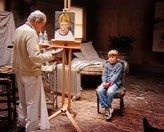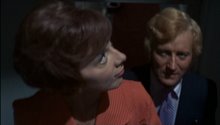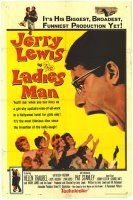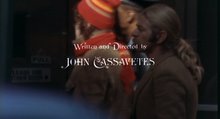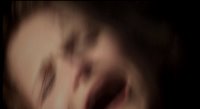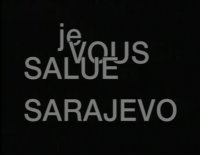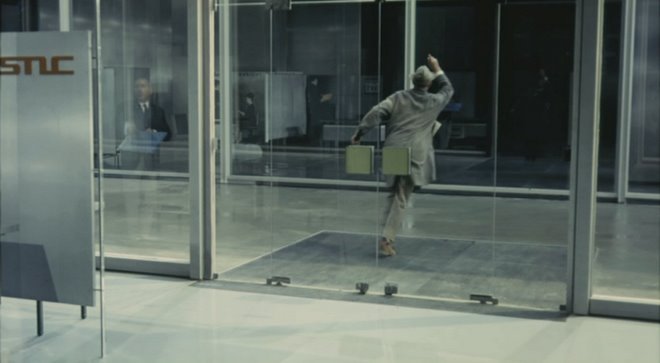 No texto que vem após a introdução e que dá início à "bíblia" da análise de filmes que é For Keeps..., de Pauline Kael (1919-2001), a autora que foi das vozes mais influentes na consagração de algum cinema europeu na América e de algum cinema norte-americano dentro e fora de portas, refere-se a Hud (O Mais Selvagem Entre Mil), de Martin Ritt, um dos títulos importantes de 1963 (recebeu três Óscares para actores secundários e direcção de fotografia), detendo-se em questões de verosimilhança do casting (em particular da escolha de Paul Newman para a figura do rebelde cínico e misógino Hud Bannon) e também do labor realista sobre o universo ficcionado que Kael conhecia particularmente bem. O texto completo é longo - cerca de 10 páginas de densa mancha gráfica - e saiu originalmente no número de Verão de 1964 da revista Film Quarterly. Vale a pena ler, no mínimo, os parágrafos que escolhi (não encontrei o texto na internet...). Kael mantém-se uma referência incontornável pela enorme bagagem cultural, pela qualidade do raciocínio e da escrita, e ainda pelo modo como deixou transparecer o facto de a sua história pessoal condicionar em parte a análise dos filmes, que considerava ser "o melhor trabalho do mundo".
No texto que vem após a introdução e que dá início à "bíblia" da análise de filmes que é For Keeps..., de Pauline Kael (1919-2001), a autora que foi das vozes mais influentes na consagração de algum cinema europeu na América e de algum cinema norte-americano dentro e fora de portas, refere-se a Hud (O Mais Selvagem Entre Mil), de Martin Ritt, um dos títulos importantes de 1963 (recebeu três Óscares para actores secundários e direcção de fotografia), detendo-se em questões de verosimilhança do casting (em particular da escolha de Paul Newman para a figura do rebelde cínico e misógino Hud Bannon) e também do labor realista sobre o universo ficcionado que Kael conhecia particularmente bem. O texto completo é longo - cerca de 10 páginas de densa mancha gráfica - e saiu originalmente no número de Verão de 1964 da revista Film Quarterly. Vale a pena ler, no mínimo, os parágrafos que escolhi (não encontrei o texto na internet...). Kael mantém-se uma referência incontornável pela enorme bagagem cultural, pela qualidade do raciocínio e da escrita, e ainda pelo modo como deixou transparecer o facto de a sua história pessoal condicionar em parte a análise dos filmes, que considerava ser "o melhor trabalho do mundo". «Somehow it all reminds me of the apocryphal story conference – “It’s a modern western, see, with this hell-raising, pleasure loving man who doesn’t respect any of the virtues, and, at the end, we’ll fool them, he doesn’t get the girl and doesn’t change!”
«Somehow it all reminds me of the apocryphal story conference – “It’s a modern western, see, with this hell-raising, pleasure loving man who doesn’t respect any of the virtues, and, at the end, we’ll fool them, he doesn’t get the girl and doesn’t change!”“But who’ll want to see that?”
“Oh, that’s all fixed – we’ve got Paul Newman for the part.”
They could cast him as a mean man and know that the audience would never believe in his meanness. For there are certain actors who have such extraordinary audience rapport that the audience does not believe in their villainy except to relish it, as with Brando; and there are others, like Newman, who in addiction to this rapport, project such a traditional heroic francness and swetness that the audience dotes on them, seeks to protect them from harm or pain. Casting Newman as a mean materialistic is like writing a manifesto against the banking system while juggling your investments so you can break the bank. Hud’s shouted last remark, his poor credo, “The world’s so full of crap a man’s going to get into it sooner or later, whether his careful or not,” has, at least, the ring of his truth. The generalized pious principles of the good old codger belong to no body.
(…)
The setting, however, wasn’t melodramatic, it was comic – not the legendary west of myth-making movies like the sluggish Shane but the modern West I grew up in, the ludicrous real West. The comedy was in the realism: the incongruities of Cadillacs and cattle, crickets and transistor radios, jukeboxes, Dr Pepper signs, paperback books – all emphasizing the standardization of culture in the loneliness of vast spaces. My West wasn’t Texas; it was northern California, but our Sonoma County ranch was very much like this one – with the frame house, and the “couple’s” cabin like the housekeeper’s cabin, and the hired hands’ bunkhouse, and my father and older brothers charging over dirt roads, not in Cadillacs but in Studebakers, and the Saturday nights in the dead little town with its movie house and ice cream parlor. This was the small-town West I and so many of my friends came out of – escaping from the swaggering small-town hotshots like Hud. But I didn’t remember any boys like Brandon de Wilde’s Lon: he wasn’t born in the West or in anybody’s imagination; that seventeen-year-old blank sheet of paper has been handed down from generations of lazy hack writers. His only “reality” is from Wilde’s having played the part before: from Shane to Hud, he has been our observer, our boy in the West, testing heroes. But in Hud, he can’t fill even this cardboard role of representing the spectator because Newman’s Hud has himself come to represent the audience.»
[Hud, Deep in the Divided Heart of Hollywood, Pauline Kael, For Keeps – 30 years at the Movies (Dutton, 1994), págs. 4 e 6]
